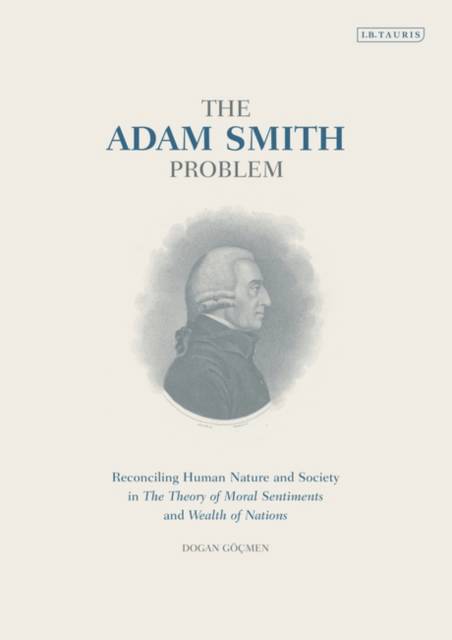
- Afhalen na 1 uur in een winkel met voorraad
- Gratis thuislevering in België vanaf € 30
- Ruim aanbod met 7 miljoen producten
- Afhalen na 1 uur in een winkel met voorraad
- Gratis thuislevering in België vanaf € 30
- Ruim aanbod met 7 miljoen producten
The Adam Smith Problem
Reconciling Human Nature and Society in 'The Theory of Moral Sentiments' and 'Wealth of Nations'
Dogan GocmenOmschrijving
This is the first scholarly work to deal solely with the Adam Smith problem, namely the apparent contradiction between Adam Smith's most famous works, "The Theory of Moral Sentiments" and "The Nature and Causes of the Wealth of Nations". Since the 1840s scholars have puzzled over and attempted to explain the fact that these works offer two fundamentally different and contradictory concepts of human nature. In this radical new approach Do an Gocmen argues that there are, indeed, two different concepts of human nature; in "The Theory of Moral Sentiments", Smith advocates a broad synchronization of human intention and behaviour under a beneficent providence in a system of mutual sympathy, whereas "Wealth of Nations" is a critical account of the human situation of the individual and is an egoistic description of human beings in commercial society. Gocmen argues that Smith does indeed put forward two different and varied ideas, arguing that the ethical position articulated in "The Theory of Moral Sentiments" can be, and was intended by Smith to be, applied as a basis for criticising the commercial society analysed in the "Wealth of Nations".
Gocmen argues that this ethical position points to the character of its ideal future replacement, that of Adam Smith's Utopia. Gocmen therefore dismisses as short-sighted and oversimple the common assumption that Adam Smith's Utopia consists merely of 'the invisible hand', the idea that markets would regulate everything if left to their own dynamics. This book challenges the traditional approach to Adam Smith and is the first contribution to the solution of a long-standing debate, making it essential reading for anyone wanting to understand the moral philosophy, political economy and utopian thought of Adam Smith.
Specificaties
Betrokkenen
- Auteur(s):
- Uitgeverij:
Inhoud
- Aantal bladzijden:
- 200
- Taal:
- Engels
- Reeks:
Eigenschappen
- Productcode (EAN):
- 9781845114008
- Verschijningsdatum:
- 1/07/2007
- Uitvoering:
- Hardcover
- Formaat:
- Genaaid
- Afmetingen:
- 180 mm x 224 mm
- Gewicht:
- 376 g

Alleen bij Standaard Boekhandel
Beoordelingen
We publiceren alleen reviews die voldoen aan de voorwaarden voor reviews. Bekijk onze voorwaarden voor reviews.








